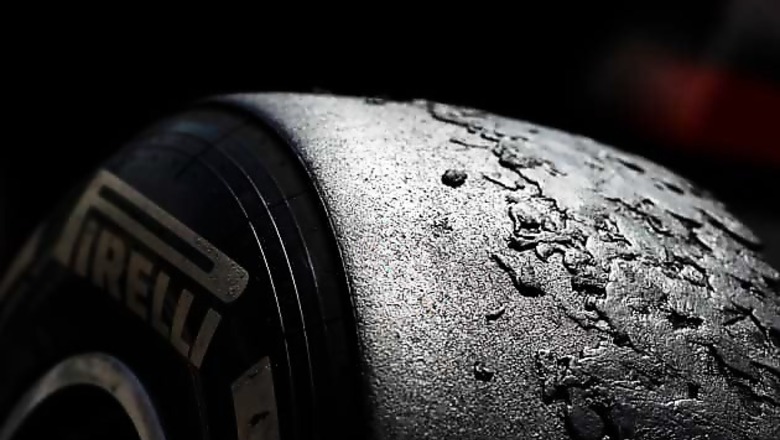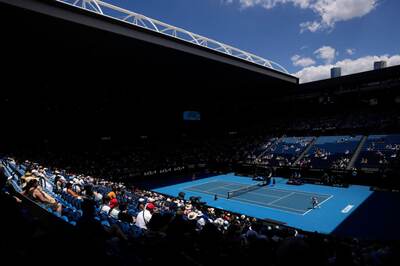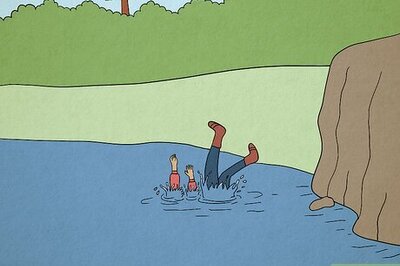
views
London: Facing a revolt from teams over exploding tyres at the British Grand Prix, Formula One's governing body allowed in-season testing on Monday to allay safety fears.
Jean Todt, the International Automobile Federation (FIA) president, said in a statement the Young Drivers Test scheduled for July 17-19 at Silverstone would be open to all F1 drivers, although Mercedes would be excluded after it was reprimanded for holding unsanctioned tyre tests in May.
Todt said the unprecedented move - in-season testing was banned in 2009 over cost concerns - follows Sunday's race where tyres exploded on four cars including Lewis Hamilton's and Felipe Massa's.
"Our priority is to ensure safety for all in Formula One and we believe the incidents at Silverstone represent a genuine safety concern for the drivers," Todt said.
"We have thus taken the decision to alter the Young Drivers Test to allow teams to use drivers they deem fit to carry out tyre development work in a bid to solve the problems we saw at the British Grand Prix. I believe it is fitting to carry out this work at the circuit upon which the issues were manifested."
Todt also said he would seek approval to amend FIA regulations to allow changes in tyre specifications without the approval of all teams - addressing a concern that some teams in the past have stymied efforts to make changes during the season.
He also called for F1's sole provider of tyres, Pirelli, to offer "assurance that there will be no repetition of the tyre problems at this weekend's German Grand Prix or at subsequent Grand Prix".
The move to allow testing comes a day after drivers nearly crashed after their tyres blew while racing at speeds upward of 180 mph.
The sight of large chunks of debris showering cars and, in one case, a huge strip of rubber flying across the track, almost led to the race being called off and prompted concerns F1 was sacrificing safety for excitement.
"Our greatest concern revolves around safety," Massa, who was nearly killed when hit by a piece of debris at the Hungary GP in 2010, said on Sunday.
"It's unacceptable having to drive knowing you are not safe. Even if, luckily, nothing serious happened, what we saw is very dangerous."
Pirelli was investigating the problems, but ruled out a new bonding process for the tyres that was introduced ahead of the British GP.
The company has been called to a meeting on Wednesday in Germany of team sporting directors and the FIA. It said it had no information on the testing.
"There have been obviously some issues with rear-left failures which we have not seen before," Pirelli motorsport director Paul Hembery said.
"We are taking the situation very seriously and we are currently investigating all tyres to determine the cause as soon as possible ahead of the next grand prix in Germany."
The tyre trouble at Silverstone is the latest controversy to hit F1's sole tyre provider, which has come under fire over concerns its tyres are wearing down too quickly and leading to races being decided by pit stops rather than action on the track.
Pirelli were reprimanded along with Mercedes for holding unsanctioned testing in May in a bid to improve the safety of their tyres.
With the German GP this weekend, several teams on Sunday called for Pirelli to quickly sort out the problem.
"We had five tyre failures here. Lots of people have a lot of theories about what that is, whether it is fatigue failure or puncture caused by debris," said McLaren's Martin Whitmarsh, who heads the F1 teams' association.
"We have been lucky that no one has been hurt."
Whitmarsh suggested going back to the 2012 tyres, while three-time F1 champion Jackie Stewart said the FIA should lift the ban on in-season testing immediately so that all teams can test their tyres this week.
He went even further, suggesting the time may have come for eliminating pit stops altogether and introducing a tyre that can last an entire race - rather than the current situation that requires two or even three stops.
"We don't need to have pit stops to make motor racing exciting," Stewart said. "We can have tyres that will do the full distance in order to get the safety element in place. If we have to make stiffer tyres, a heavy tyre, a bigger tyre, let's do that and have no pit stops if that is what it takes to get over this hurdle.
"If we went into another Grand Prix or two and saw this happening again and something really nasty were to happen, we would never forgive ourselves for not doing something."



















Comments
0 comment